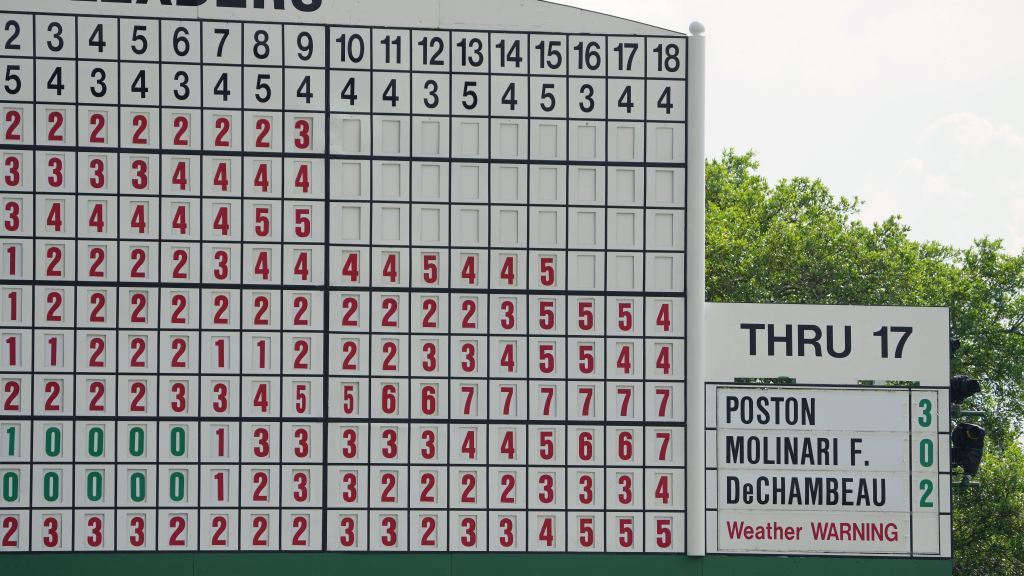AUGUSTA, Ga. — Warm temperatures, light wind and soft greens allowed the best golfers in the world to assault par Thursday at Augusta National Golf Club in the opening round of the 87th Masters.
The middle portion of the course’s famous second nine, forever a forum for fireworks, was especially forgiving. Balls settled on softened slopes, void of the typical fire. Approach shots came to rest mere feet from where they landed.
This wasn’t quite November 2020, when longstanding Masters scoring records crumbled like a White Chocolate Georgia Pecan cookie, but the sights, scenes and scores were similar.
“Luckily I don’t think the wind blew as hard as it was supposed to today,” said co-leader Jon Rahm, who teed off at 10:42 a.m. ET “And starting on 13 on, I mean, we barely had any wind and was able to take advantage of that.”
Masters 2023 leaderboard: Get the latest news from Augusta
The par-5 15th was the easiest hole. The par-3 16th was the easiest non-par 5. Even the 10th, typically a treacherous start to the inward nine and the second-most difficult hole in the first 86 Masters, played to a mere 4.163 stroke average Thursday, ranking seventh.
The pros faced four of the five most demanding holes in the opening seven. Those who survived could stomp the gas and climb the board.
When the winds swirl and the pressure rises, the par-3 12th can destroy Masters dreams. Historically the fourth-most difficult hole on the course, the 155-yard beauty over Rae’s Creek ranked just 10th in stroke average in the opening round.
Approach shots there danced around the flagstick. Co-leader Brooks Koepka’s tee shot spun back 12 feet to set up one of his eight birdies. Players were safe to take dead aim to a hole cut on the right side of the green. The 12th, which yielded an average of 37.5 total birdies in the last two Masters, surrendered 17 on Thursday.
Pre-tournament comments from the players suggested the 35 yards added to the par-5 13th since last year’s Masters would produce more conservative play. But there was abundant aggression instead.
There were three eagles – half as many made in four rounds last year. Chris Kirk came within inches of an albatross from 244 yards out to resurrect a round headed nowhere. Two other medium-length hitters, Tom Kim and Justin Rose, also made eagle.
The 13th is the easiest hole at Augusta National in tournament history. Even as the most difficult par-5 in the opening round, the 4.721 stroke average was a tenth…
..
Click Here to Read the Full Original Article at Golfweek…
